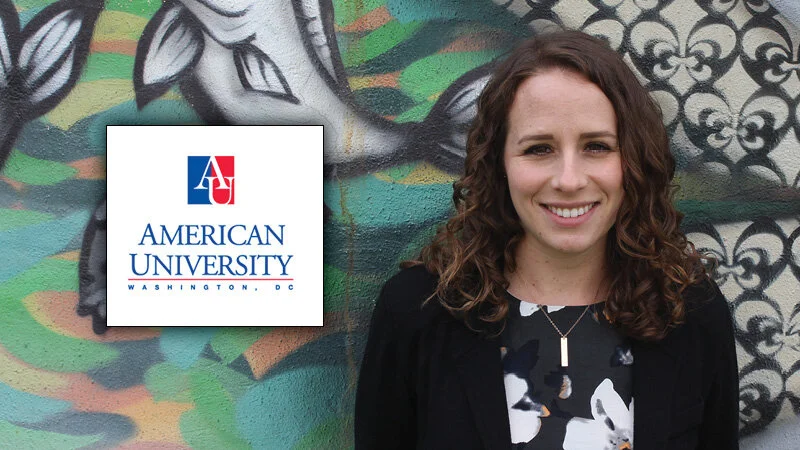Stronger America Through Seafood (SATS) had a conversation with David Brock, an aquaculture nutritionist at Rangen Wilbur-Ellis, a SATS member. His company is a 90-plus year-old aquaculture and general feed company with production facilities in Buhl, Idaho, and Angleton, Texas that was acquired by Wilbur-Ellis Nutrition in 2019.
Read MoreMeet Steve Phelps, an award-winning chef, restaurant owner, sustainable seafood advocate and recreational fisherman, who describes his mission as simple: good sourcing and respect for the planet.
As Congress debates ways to address the many pressing challenges we face, increasing American aquaculture should be one of the solutions. That is why Stronger America Through Seafood (SATS) is calling on Congress to clarify a regulatory pathway for permitting offshore aquaculture, an essential industry that would help solve some of the critical problems we face.
Read MoreStronger America Through Seafood (SATS) spoke with Danielle Blacklock, the Director of the Office of Aquaculture at the National Oceanic and Atmospheric Administration (NOAA), about why the expansion of aquaculture is part of the agency’s efforts and how it is essential for the future of the seafood industry and our country.
Read MoreSATS had a conversation with an aquaculture policy expert on Capitol Hill, Kat Montgomery, who currently works as a Sea Grant Knauss Fellow in Senator Roger F. Wicker’s (R-MS) office. Kat discussed the opportunities for aquaculture in the new Congress and the need for federal legislation to support the growth of the industry, as well as the benefits that aquaculture would provide the U.S.
Read MoreAfter one of the toughest years in our nation’s history, Congress will need to prioritize legislative initiatives that will help American communities recover from the unprecedented challenges and hardships that have resulted from the COVID-19 pandemic. Aquaculture should be one of those priorities.
Read MoreMarine aquaculture can provide food, carbon sequestration, and reduced emissions. Some forms of marine aquaculture may even lessen the impact of storm surges and sea level rise on coastal ecosystems and communities. These direct benefits are all important. But some of the most important benefits marine aquaculture offers is contribution to the diversity of responses to the climate crisis.
Read MoreOver the past few decades, aquaculture has made leaps and bounds in improving environmental responsibility. Giant Eagle stands firm to reward these efforts and provide our guests with products that reduce their environmental footprint.
Read MoreAquaculture would complement wild fishing to increase our supply of healthful and affordable seafood with minimal environmental impact, helping to protect and preserve our natural resources while we are faced with challenges stemming from a changing climate.
Read MoreThe United States, and California specifically, has an incredible opportunity to create an entirely new industry - offshore aquaculture. But federal legislation is needed to provide the foundation on which to build this industry.
Read MoreThe expansion of domestic aquaculture is one way for American communities to grow our economy, create jobs and support the seafood and agricultural industries while supplying our nation with healthy and sustainable American-raised seafood.
Read MoreOn September 24, 2020, a new bill on aquaculture was introduced in the U.S. Senate with bipartisan support – a positive development for the seafood industry and the communities nationwide that would benefit from the development of offshore aquaculture in the U.S.
Read MoreAs one of the world’s largest seafood purchasers, Red Lobster believes it has a responsibility to protect and preserve the oceans and marine life for generations to come. Sustainable and responsibly sourced seafood plays a critical role in protecting our fisheries and ocean ecosystems.
Read MoreAquaculture production has been growing in the U.S. in recent years, and has the potential to become a large industry for coastal U.S. states, including Hawaii. Recent advances, focused on offshore farms, along with well-defined federal support and regulation, will allow for reduced aquaculture costs and wider adoption of the industry within the U.S.
Read MoreNOAA Fisheries has taken the first step in a proactive process that will create opportunities for aquaculture farmers and foster the U.S. aquaculture industry as a needed complement to our wild-caught fisheries.
Read MoreBarton Seaver, an award-winning chef and one of the world’s leading sustainable seafood experts and educators, recently spoke with Stronger America Through Seafood from a beach near his home in Maine.
Read MoreClams and oysters have been acting as incredible water filtration devices long before we ever showed up, and our company’s objective is for municipalities to see shellfish as a natural agent for keeping our waters healthy and full of life.
Read MoreAquaculture is the world’s most important source of seafood. Today, more than half of the seafood Americans consume is farm-raised and the vast majority is imported. By establishing a clear and predictable legal and regulatory structure for marine aquaculture in the U.S., we can reduce our overreliance on seafood imports and improve seafood security with wholesome, domestically farmed seafood with minimal environmental impact our marine habitat and resources.
Read MoreSince aquaculture encompasses a wide range of species and cultivation methods that result in diverse social, economic, nutritional, and environmental outcomes, the specific role of aquaculture in a more sustainable, food-secure future depends on how the sector evolves in the coming years.
Read MoreAs Kentucky expands its aquaculture industry, the demand for local soymeal into local fish feed to grow local fish is poised for explosion.
Read More




















